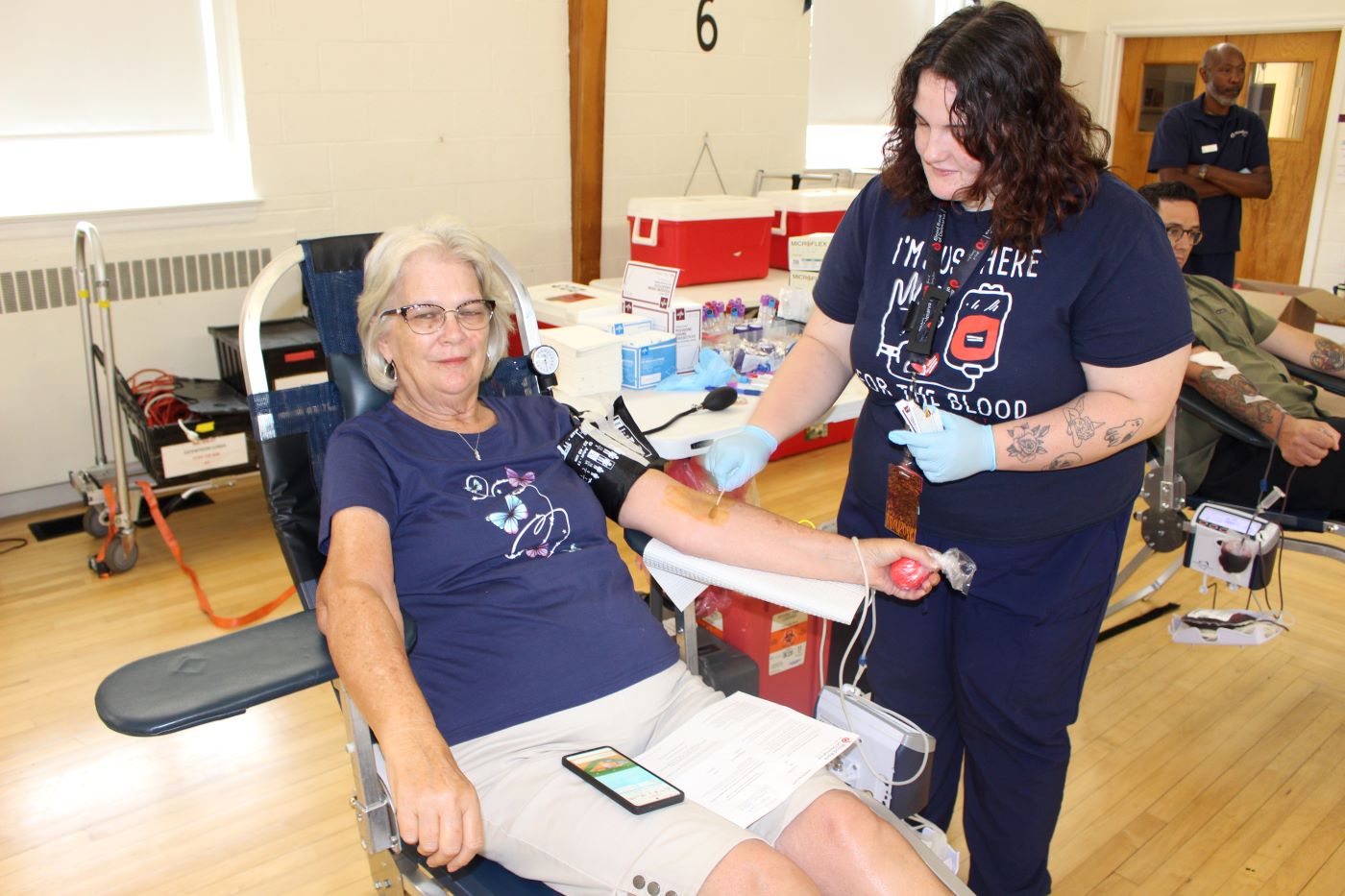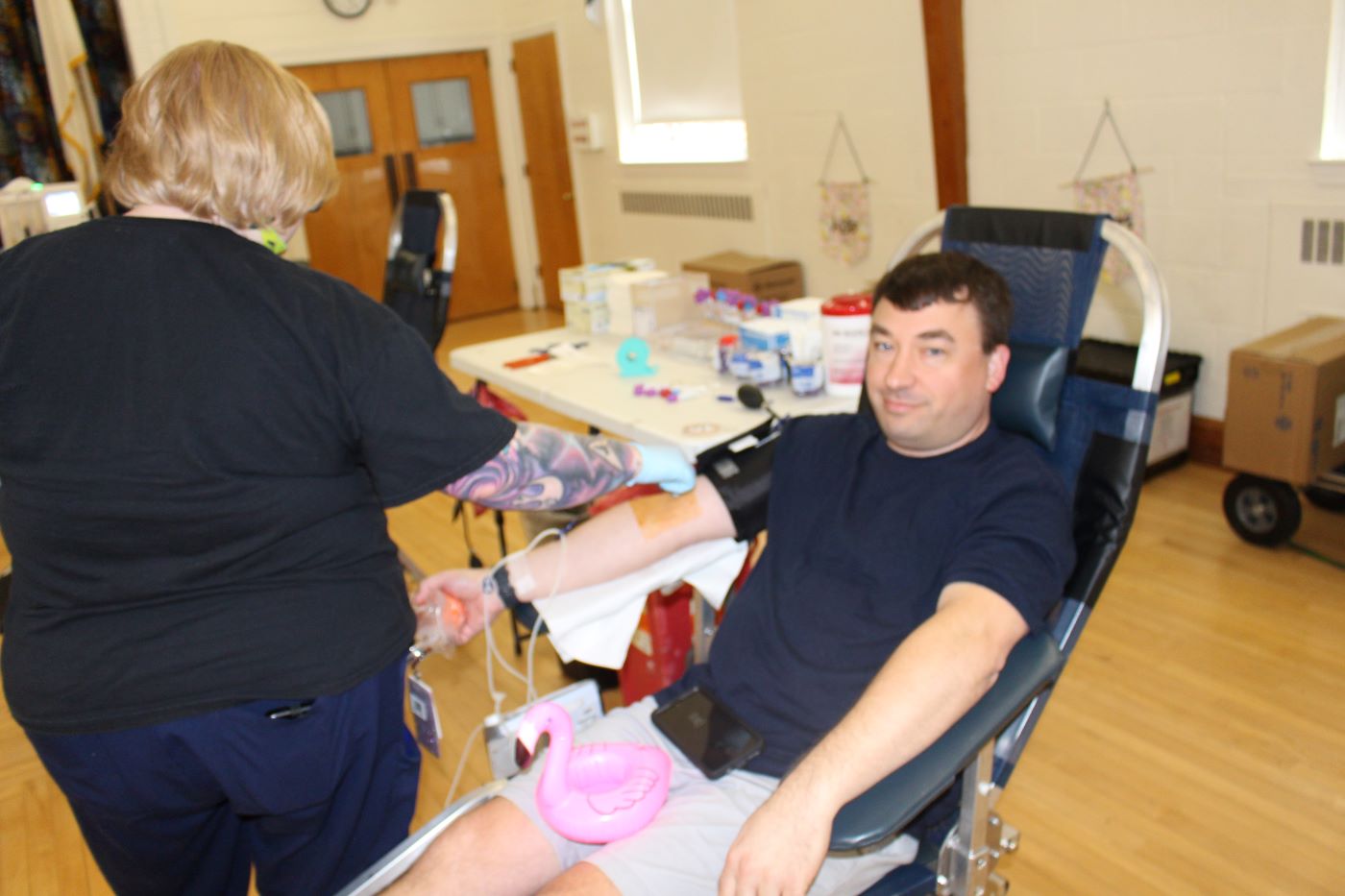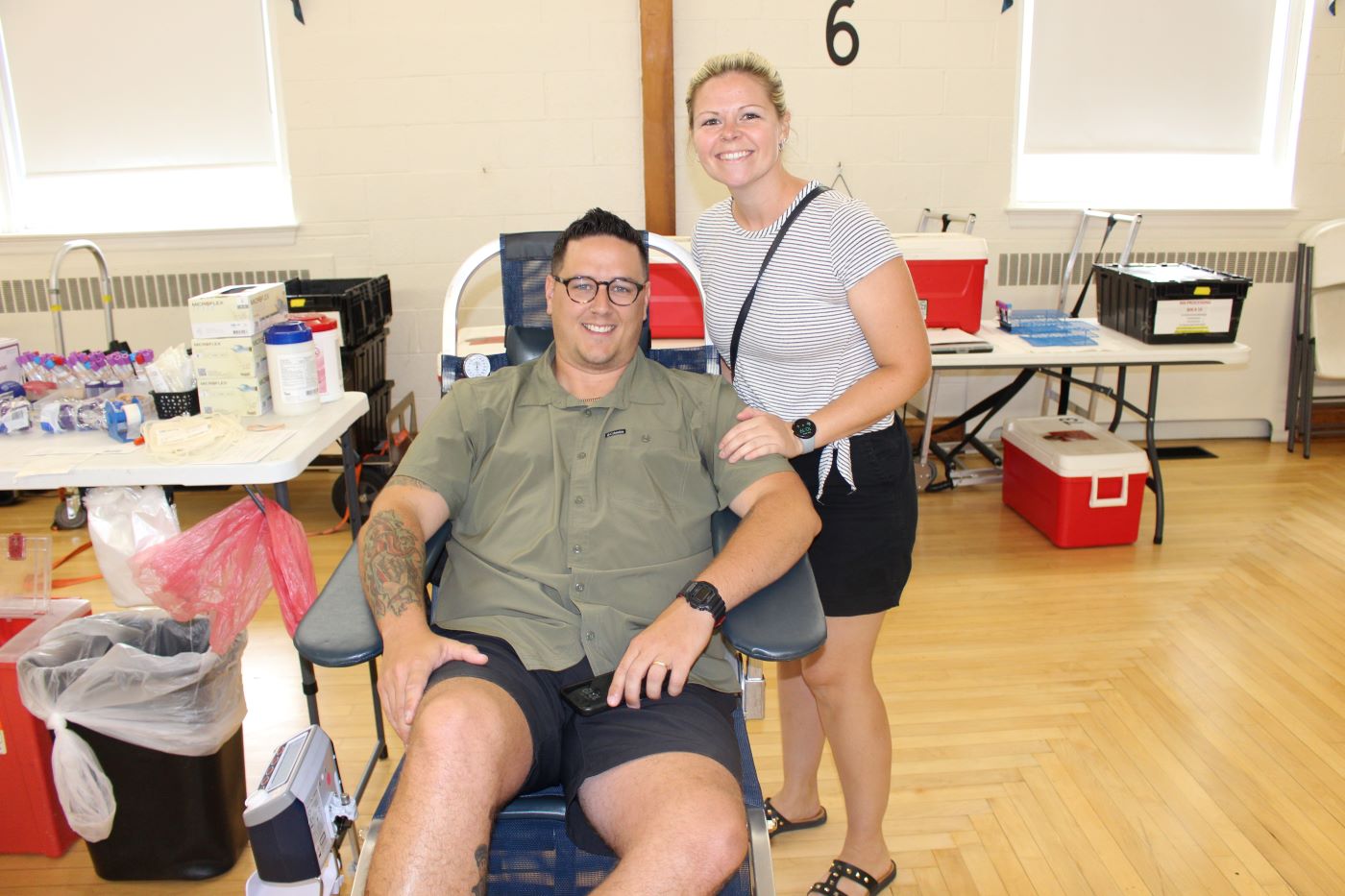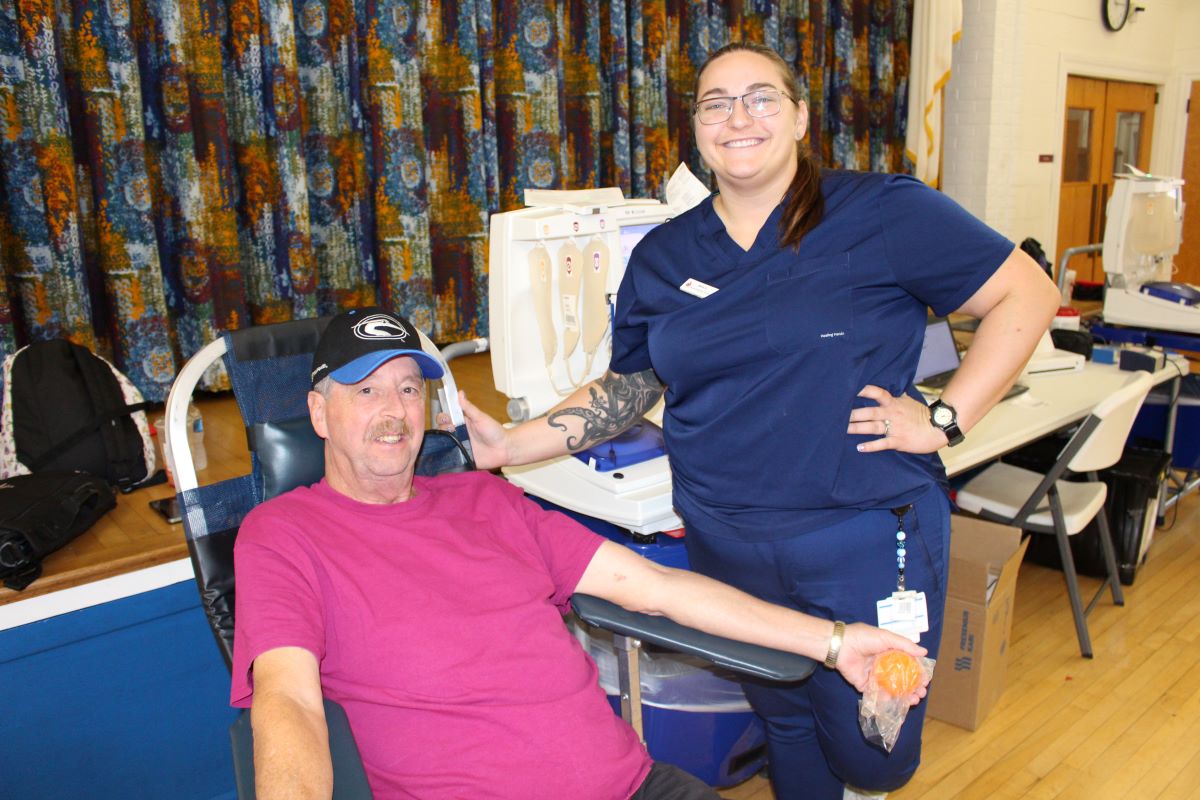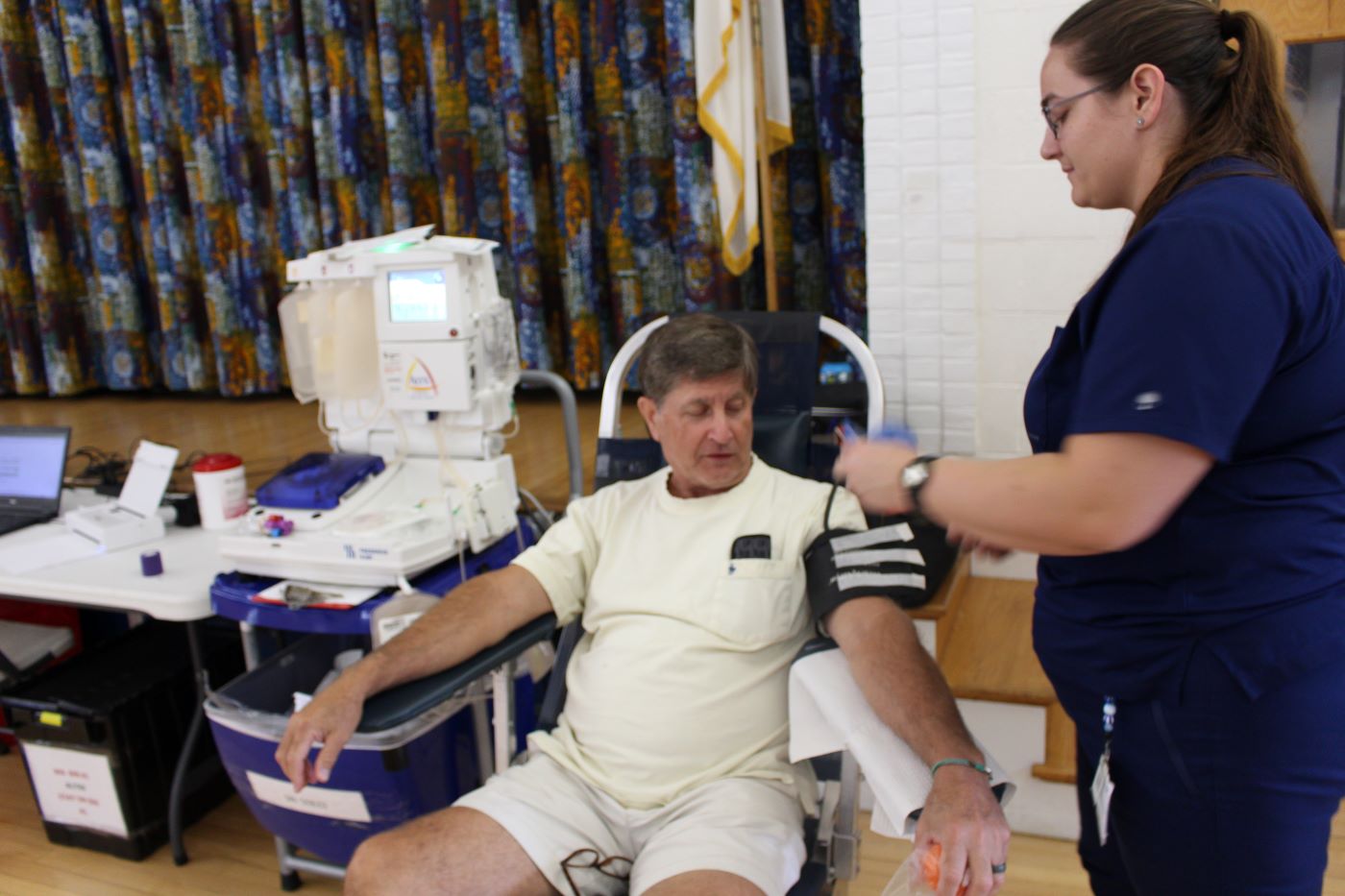Occasionally, a blood drive comes along that doesn’t have the biggest numbers, but provides Blood Bank of Delmarva (BBD) with valuable, intangible assets.
On the face of it, one could view the number of no-shows at the fourth, bi-annual Could B U Blood Drive as a failure, but “when life gives you lemons, you make lemonade.”
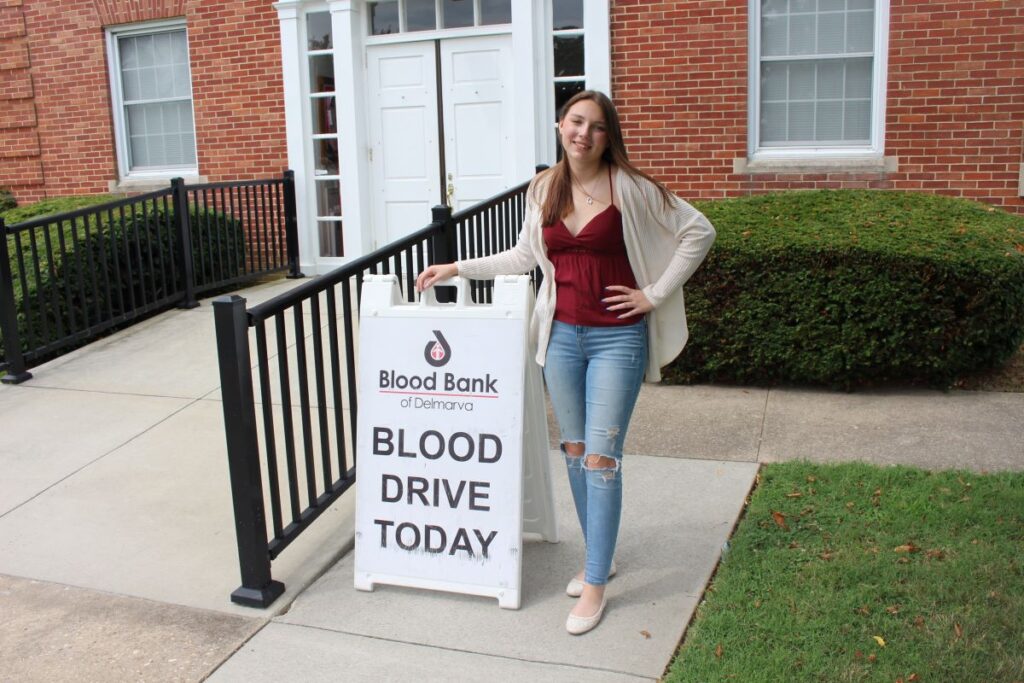
There were 26 appointments, eight no-shows, and a few deferrals. Yes, that could be discouraging, but BBD still ended up with 19 units collected from whole blood and double red cell donors.
While 19-year-old Faith Hubbard may have been among the deferrals, she helped in another, powerful way – by filming a 10-second video clip encouraging other young people to donate.
“I heavily encourage all of you guys to come and donate blood, if possible,” Hubbard said in the clip. “My Mom always did it. My Mom has MS, so she wasn’t really able to donate anymore. But she always donated since she was younger. Her mom did it. My twin sister [Sarah] and I do it.” “(SECRET PHRASE: PINT)”
She said donating at North Dorchester High School in Hurlock, MD, was a good experience.
“When they call me and ask me, I’m never going to say no,” Hubbard said. “If somebody donated in high school, reach out to them now. You never know; they might show up.”
Jennifer Satchell was also deferred at the Could B U Blood Drive, but she brought her husband, Larry Satchell, who was able to donate successfully.
In addition, Francis Beall donated blood for the first since 1987, and he donated double red cells to make up for lost time.
“I had been prohibited because I had lived in England during the mad cow disease breakout,” he said.
Debra Short, an O positive donor, donated at the last Could B U Blood Drive held in the spring (April 17).
“That was the first time I ever did it because I’m a little sissy. But it was so easy,” Short said of her first donation. “I thought, I can do this whenever.”
Jeff Allen, the drive coordinator, appreciated all the donors who came out. Allen was diagnosed with acute myeloid leukemia in August 2020. He received several transfusions of platelets and red blood cells until a bone marrow transplant helped him achieve remission.
“The Could B U Blood Drive has been named that because it could be you at any point in your life,” Allen said. “Yes, giving blood saves lives and helps people. I’m a prime example of that.”

